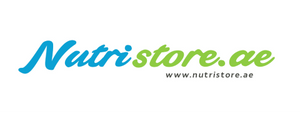Mighty Protein: Your Body's Secret Weapon for Wellness
1. The Mighty Protein: Your Body's Secret Weapon for Wellness
The health and wellness sector has recently seen a surge in protein powder sales, driven by growing awareness of the protein’s essential role in supporting overall well-being.
Originating from the Greek word "proteios," meaning "primary," protein is the most abundant non-water substance in the human body. It’s the structural cornerstone of nearly every cell and is crucial in the formation of muscles, skin, hair, nails, ligaments, tendons, and connective tissues. Additionally, proteins act as enzymes and hormones, regulating essential bodily functions.
2. Your Body's Master Builders: The Science of Protein
Composed of amino acids, protein serves as the body's construction kit. While the body can produce most amino acids, nine essential ones must come from food sources. A protein's value is determined by how well it provides these essential amino acids, as well as its digestibility and how effectively it supports body functions.
3. Cracking the Code: What Makes Protein 'High Quality'?
Not all proteins are equal in their ability to support your health. Understanding protein quality can help guide your dietary decisions.
Complete vs. Incomplete Proteins:
Complete proteins—found in animal products like meat, eggs, dairy, and fish—contain all nine essential amino acids. Some protein sources, like collagen peptides and bone broth, are incomplete due to missing tryptophan, though pairing them with other plant-based proteins can complete the amino acid profile.
The PDCAAS Score:
The Protein Digestibility Corrected Amino Acid Score (PDCAAS) is the leading metric for protein quality. A score of 1 indicates top-quality protein, with most animal-based protein powders scoring this high. Plant-based proteins like soy, pea, spirulina, and pumpkin seed also perform well.
4. How Much Protein Do You Really Need?
Protein needs can vary greatly depending on factors such as age, activity level, and special conditions (e.g., pregnancy or illness). The general recommendation is 0.8 grams per kilogram of body weight, but athletes or individuals with high physical demands may need between 1.2 and 2.2 grams per kilogram.
5. Protein Timing: Maximize the Benefits
The timing of your protein intake can influence its effectiveness. A typical serving of 20 grams of protein daily supports general health, but if you’re building muscle or recovering from intense workouts, taking protein shortly after exercise can accelerate recovery and promote muscle growth.
Balance is essential—excessive protein intake can put stress on the kidneys and liver, and may lead to calcium loss from bones.
6. Exploring Protein Powders: Animal vs. Plant-Based Choices
Protein powders come in many forms, each offering unique benefits for specific dietary preferences and fitness goals.
Whey Protein: The Fast-Acting Muscle Builder
Whey protein is one of the most popular supplements for muscle growth, packed with BCAAs and glutamine to support recovery. It’s available in concentrate (25-89% protein) and isolate (90%+ protein) forms.
Casein: The Slow-Release Protein
Absorbed more slowly than whey, casein is perfect for extended muscle repair, often consumed before bed to promote overnight recovery.
Egg White Protein: A Dairy-Free Alternative
Egg white protein offers a high-quality, lactose-free option that provides a steady release of amino acids throughout the day.
Collagen & Bone Broth: The New Health Craze
Collagen peptides and bone broth protein powders are packed with collagen, which supports skin, joints, and hair health. Studies show that collagen supplementation can reduce wrinkles and enhance joint and tissue health.
7. Plant-Based Protein Powders: Pure, Green Power
For those on plant-based diets, several nutrient-packed protein powders provide sustainable, health-boosting benefits.
Pea Protein: A Plant-Based Muscle Powerhouse
Pea protein is a complete protein that supports muscle health, appetite control, and blood sugar regulation, though combining it with other plant proteins can ensure a balanced amino acid profile.
Soy Protein: The Plant-Based Staple
Soy protein isolate is a high-quality plant protein that supports cardiovascular health, muscle growth, and hormonal balance, with the added benefit of isoflavones to help with bone health and menopausal symptoms.
Spirulina: The Protein-Packed Superfood
Spirulina is a blue-green algae containing about 60% protein. It’s rich in essential fatty acids, vitamins, and minerals, making it a fantastic supplement to protect muscle mass and boost energy.
Pumpkin Seed Protein: A Nutrient-Dense Option
Offering about 60% protein, pumpkin seed protein has a clean, earthy taste and is rich in fiber, vitamins, and minerals, making it an excellent addition to your daily diet.
8. Build the Perfect Protein Smoothie
Protein powders make it easy to enhance smoothies with essential nutrients. Here’s how to craft the ultimate protein-packed smoothie:
Step 1: Choose Your Protein Powder
Select a protein powder based on your needs—whether animal or plant-based. Typically, one serving contains 20-30 grams of protein.
Step 2: Pick Your Liquid Base
Pick a liquid base such as almond, oat, or coconut milk, or even regular milk or water, depending on your flavor preference.
Step 3: Add Fresh Ingredients
For added vitamins and minerals, incorporate fruits or vegetables like berries, bananas, spinach, or kale.
Step 4: Boost Nutritionally
Superfoods like acai, goji berries, spirulina, or spices like cinnamon and turmeric can enhance the health benefits of your smoothie.
9. 3 Simple Protein Smoothie Recipes for a Quick Boost
Try these delicious and nutritious recipes for an on-the-go protein power-up:
Berry Protein Smoothie
-
8-12 oz almond, oat, or rice milk
-
20-30g protein powder
-
1 cup frozen mixed berries (blueberries, raspberries, or strawberries)
Apple-Cinnamon Protein Smoothie
-
8-12 oz almond or soy milk
-
20-30g protein powder
-
1 small red apple, chopped
-
¼ to ½ tsp cinnamon
Strawberry-Banana Protein Smoothie
-
8-12 oz vanilla soy milk or water
-
20-30g protein powder
-
½ cup fresh or frozen strawberries
-
½ cup sliced banana
